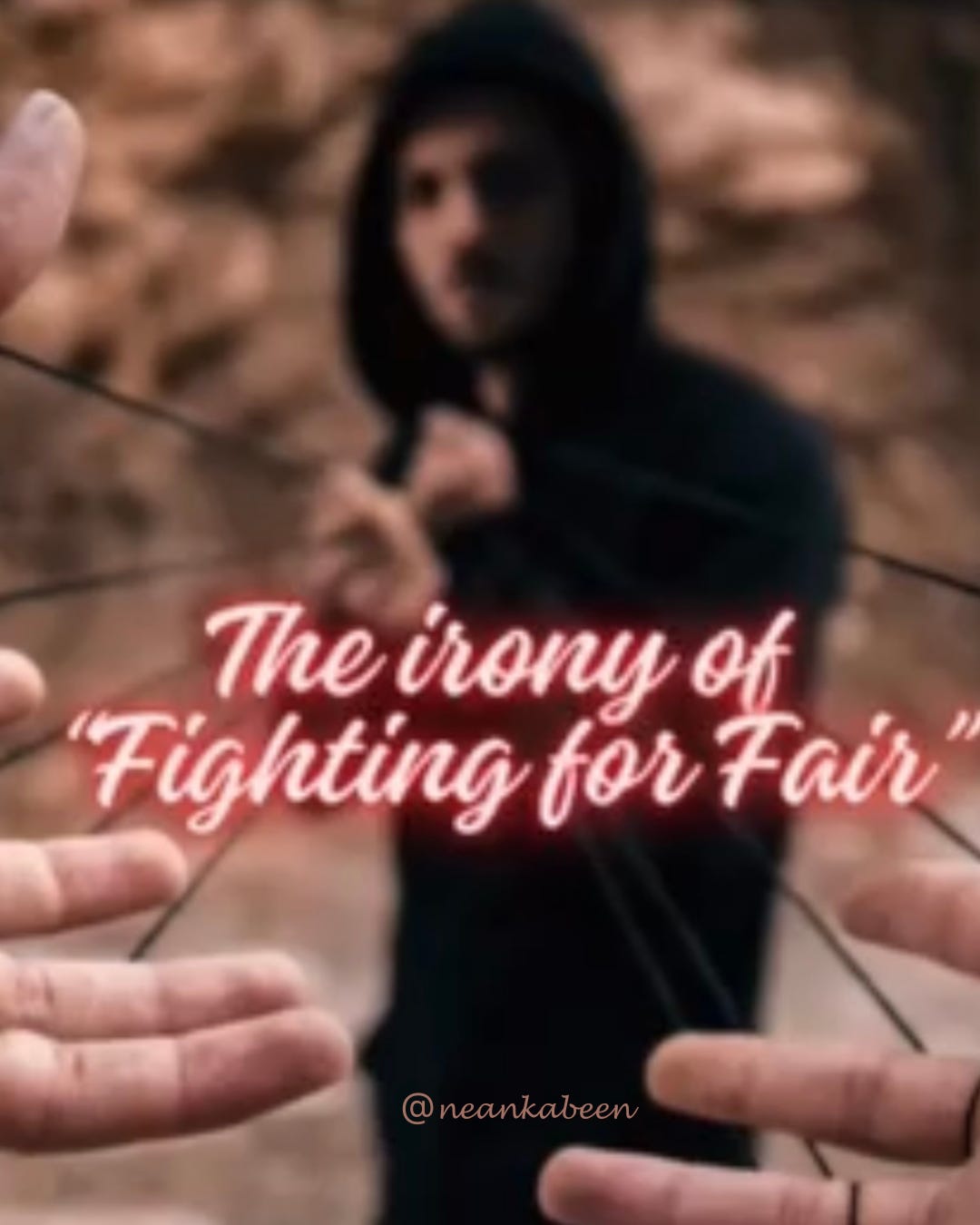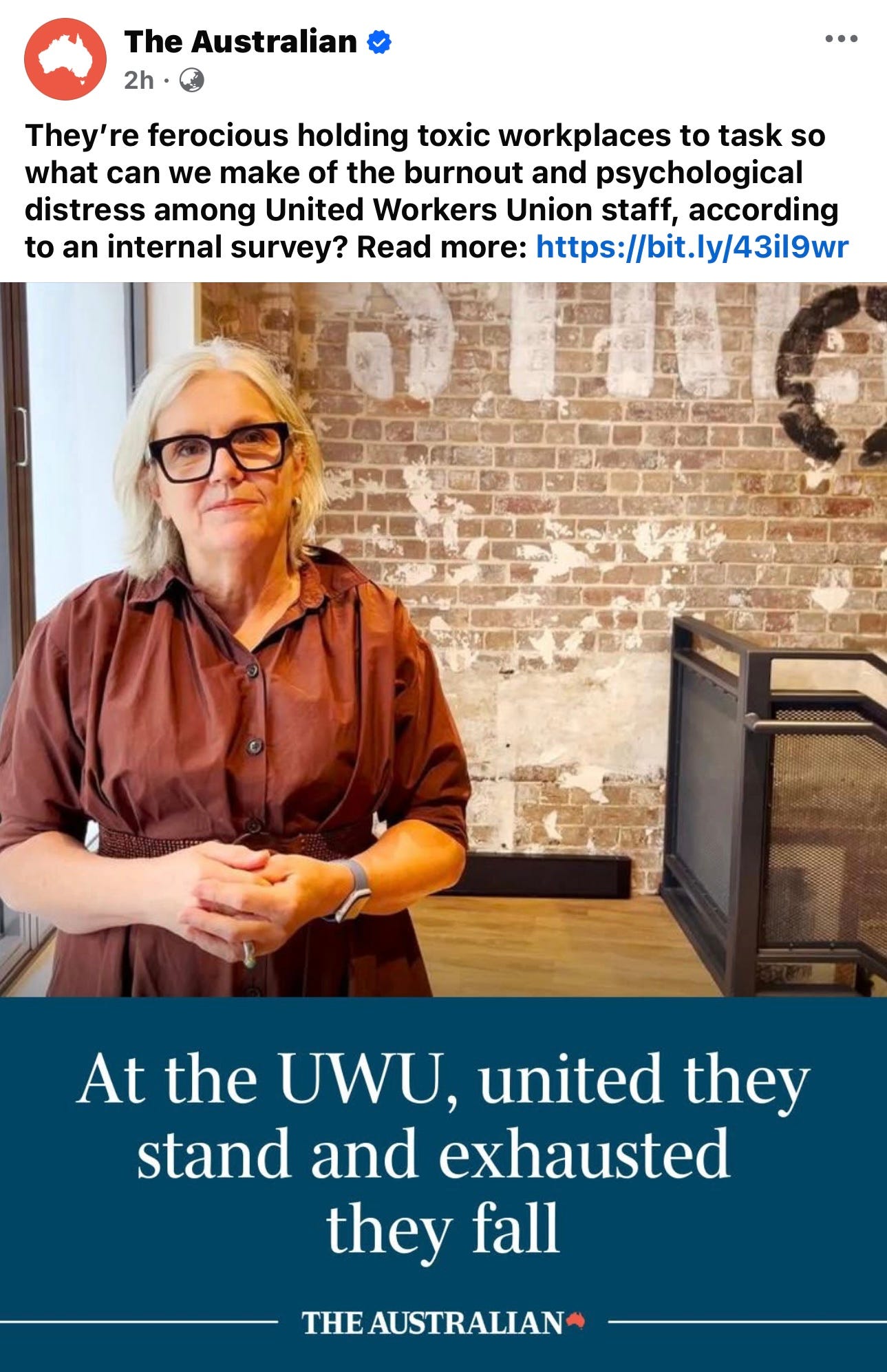What would a union say about a workplace where a third of workers showed signs of severe psychological distress, and only 22% considered it a mentally healthy place to work?
They’d call it a crisis.
They’d demand accountability.
They’d organise. Protest. Take it public.
They’d call for psychological safety audits and leadership resignations.
But what happens when the toxic workplace is the union?
That’s not a hypothetical. It’s the reality unfolding within one of Australia’s most politically powerful unions: the United Workers Union (UWU). According to results from an internal staff survey, just dropped into employee inboxes, a staggering number of workers inside UWU are suffering in silence. And the silence from leadership? Deafening.
This is more than just an HR issue. It’s a credibility crisis.
Unions are supposed to be bastions of justice, dignity, and worker protection. When the rot is internal, when the very organisations meant to shield workers become the perpetrators, it guts the core of the movement.
The report, as covered by Nick Evans and Yoni Bashan here, is confronting. But it’s also a mirror. Because UWU is not the only union where this has happened. It’s just one of the few where the numbers made it into daylight.
I know this story intimately.
Not from a distance, but from inside the machinery.
I, too, have seen how easily power masquerades as protection, how dissent is pathologized, and how toxic culture is swept under the rug to “protect the brand.”
But if unions want to remain relevant, especially to younger generations already skeptical of legacy institutions, they need more than values on a website. They need to embody those values in practice. Internally. Consistently. Transparently.
Because here’s the truth:
If a union can’t protect its own, it has no business leading the fight for anyone else.
Let this be a wake-up call. Not just for UWU, but for the broader labour movement.
Reckoning starts at home.
—
If you’ve experienced workplace harm inside a union or advocacy organisation, you’re not alone. You can share your story, confidentially or publicly, by replying to this email or reaching out via jeanineorzani@gmail.com or 0417143964.
🧠 Reckoning Room Recommends
A curated list of sharp reads, sobering insights, and sources of strength.
📘 1. How Many More Women by Jennifer Robinson and Keina Yoshida
An unflinching examination of how the legal system silences women and whistleblowers. Essential reading for anyone navigating retaliation, defamation, or institutional gaslighting.
🎧 2. A Psychologist’s Guide to Toxic Workplaces – ABC RN Life Matters
This episode breaks down how chronic workplace stress manifests—and why “toughening up” isn’t the answer. Insightful, evidence-based, and validating for survivors.
📄 3. Workplace Mental Health Audit Template – Mentally Healthy Workplaces Australia
A practical tool for measuring psychological safety and pinpointing risks—something every union (and employer) should be using before crisis hits.
🗞️ 4. The Full Report on UWU’s Internal Crisis – The Australian (via Nick Evans & Yoni Bashan)
The investigative piece that sparked this edition. Worth reading in full to understand how deep the cracks run.
💬 5. Instagram Accounts Worth Following
@decentworkcollective – Advocacy, tools, and stories from those fighting for systemic change in toxic workplaces.
@thenapministry – Because rest is resistance. Especially when you’ve been burnt out by institutions that should have had your back.





